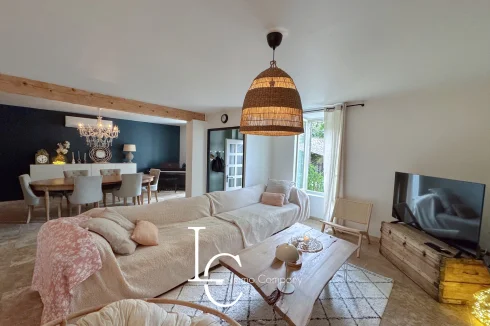Complementary 'Mutuelle' French Health Insurance Contracts
Friday 08 September 2017
What do you need to consider in selecting your complementary (mutuelle) French health insurance policy?
As a broad rule of thumb the system reimburses around 70% of routine medical consultations, but it is lower for most medicines and tests. Hospital stays are reimbursed at the rate of 80% and most major illnesses are (more or less) fully covered.
Patients therefore need to decide whether to pick up the balance out of their pocket or take out an insurance policy to cover the costs.
This choice applies whether or not your health cover is provided through an S1 certificate, as the S1 only grants entitlement to the same level of reimbursement as French nationals.
These complementary health insurance policies are called l'assurance complémentaire santé. In English, the policies are variously described as 'complementary', 'voluntary' and 'top-up' health insurance.
The policies are offered by non-profit making 'mutuelles' or private insurance companies.The extent of your cover under one of these policies will depend on the terms of the policy, so here is a list of items you need to look out for, together with some of the terms used. Clearly, the stronger the policy the higher the level of the premium you will pay. Expect to pay anything from €70 a month for a young single person, up to €500 a month for a couple in their 50s seeking a premium comprehensive policy.
Insured Persons
It may seem an obvious point, but check that everyone you are seeking to be insured under the policy is actually covered. The fee proposed by the insurer may well be per person, which you may unwittingly misinterpret as the total fee for the whole household. Only those who are given as ‘assurées’ will be included in the policy.
Exclusion Clauses
Some insurance policies may operate exclusion clauses. These may include treatment arising from certain sports activities, cosmetic surgery, thermal treatment, injuries arising from alcohol abuse, or treatment where the insured deliberately acts to put their life at risk.
Medical Questionnaire
The mutuelles do not require that you complete a medical questionnaire, although this is not the case with some private insurers. Once you have entered into the contract, no insurer can subsequently increase or decrease the level of your premium as a result of your medical condition.
Age Limits
Certain insurers operate a maximum age limit in order to benefit from their policies, although this is normally only in relation to particular types of policies, eg family policies. Conversely, almost all insurers will have specific policies for elderly persons - mutuelle seniors - although these policies will inevitably be more expensive.
Waiting Period
The policy will not normally come into operation immediately, as a waiting or qualifying period will apply. This period is called the ‘délais de carence’ or délai d’attente. It is normally three months minimum, but may be six or even 12 months in exceptional cases. Normally it will apply only to certain types of medical treatment, notably dentistry, optical, pregnancy and hospitalistion outside of accidents and emergencies. A long waiting period may substantially reduce the level of the insurance premium. If you already have insurance cover and you are merely changing insurer or policy the waiting period will normally be waived.
Direct Payment
In order that patients have no need to pay out of their pocket for their medical treatment, in collaboration with health professionals, most insurers participate in automated payment systems called ‘tiers payant’. This means that all reimbursable costs are paid directly by the social security system and your insurer.
Not all professionals accept tiers payant, and it will only operate to the extent of your complementary insurance cover, so some costs may remain directly payable by you.
Hospital Costs
All complementary policies should cover basic hospital costs - ‘garantie hospitalisation’ – but certain costs are often the responsibility of the patient, such as television, single room, telephone, internet. You need to ask the insurer if these costs are covered. A single room - chambre particulière/individuelle - will normally be at a premium charge.
Consultant's Fees
Many consultants now charge supplementary fees - dépassements d'honoraires – over and above the standard social security tariff. Your policy may not cover any of these extra charges, or only a proportion of them. Those policies reimbursed at the rate of 100% will only cover the regulated tariffs. Only if the policy is stated as reimbursing above 100% will some or all of these supplementary charges be covered by your policy.
Excess
Certain policies may operate an insurance excess – franchise -, which requires that you may be obliged to pay a proportion of the initial costs. Most also operate a cost ceiling – plafond - in relation to total costs or specific treatment. This is not infrequently the case with dental care and consultant supplementary charges. There are also statutory excess payments, such as the compulsory €1 payment for consultations.
Administrative Charges
Some insurers apply a charge for processing of the application, called frais de dossier. The practice is not widespread, but may be up to circa €100 if applied.
Termination of Contract
Most contracts are automatically renewed each year on their anniversary date, which means you may not be able to easily and quickly terminate your existing policy if you wish to change your insurer. Check the terms of 'resiliation' of the contract.
Thank you for showing an interest in our News section.
Our News section is no longer being published although our catalogue of articles remains in place.
If you found our News useful, please have a look at France Insider, our subscription based News service with in-depth analysis, or our authoritative Guides to France.
If you require advice and assistance with the purchase of French property and moving to France, then take a look at the France Insider Property Clinic.





